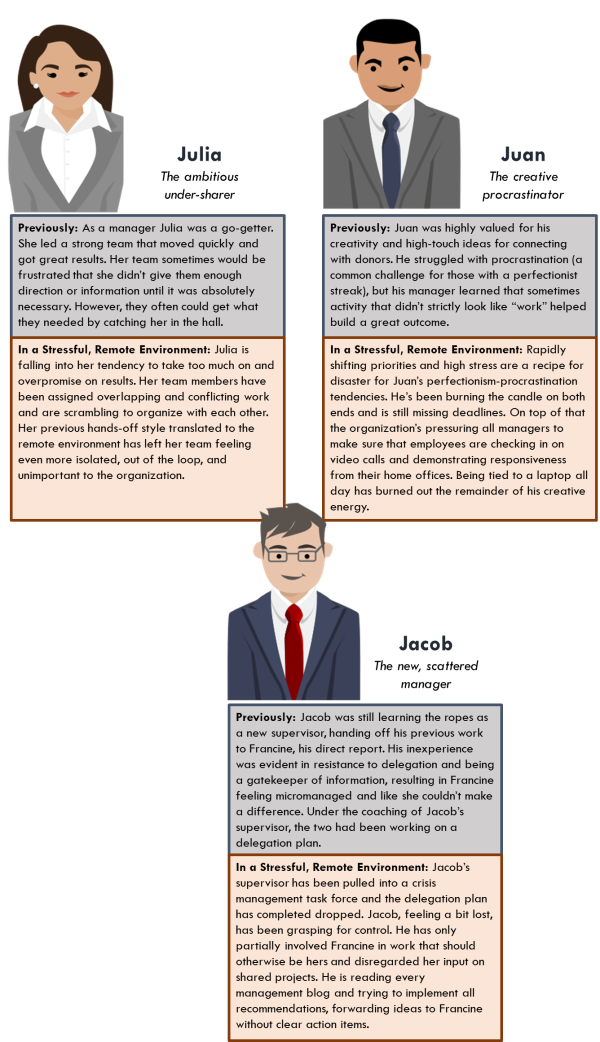Are you wondering why you’re getting frustrated with your colleagues when you know you should be more tolerant? Are you seeing employees make easy mistakes you thought they had kicked years ago? There’s a reason for that: our current environment sets employees up to have their weaknesses both worsened and on display.
We’ve all been through quite a bit in the last few weeks – organizations across the world are now working remotely, repositioning for dealing with an active crisis, or even completely shut down. For those of us who are in a newly imperfect remote environment (my dog says hello from my couch), we are learning a few things about ourselves and our colleagues. Today we’re going to talk about how a remote work environment exacerbates existing challenges in the workplace, namely: bad habits and poor communication shine when employees are under stress and only can connect through technology. Previously manageable concerns escalate and become untenable. Consider the employee scenarios below. Each would be an otherwise adequate or even a strong performer in a normal workplace, but now face and present a new level of challenge.

So what can you do? Here are a few tips:
- Start with yourself. No one is perfect – including you! Think about the areas in which you have been given constructive feedback. Do you have trouble practicing patience with employees? Have you received feedback that you don’t share enough information with your direct reports? Have you struggled with talking over others in meetings? Set goals and times for yourself to keep these bad habits in check. Write down when you notice these tendencies coming up – it will train your brain to recognize and interrupt the behavior more readily.
- Build awareness with your employees, especially supervisors. Sometimes being conscious of our unproductive impulses helps us regulate them, moderate responses, and open up communication with colleagues. Train your team to know the signs of their bad habits and to talk about their weaknesses without it being taboo. Share resources to build employees’ individual toolkits for not only managing stress personally, but also being aware of how it impacts their own behavior.
- Don’t wait for the conflict to erupt. People come to talent management and leadership often only when something has escalated. It’s harder to fix things when tensions are already high. HR/Employee Relations leads should be circling back with all teams and employees who have struggled, navigated conflict, or needed guidance as a supervisor in the past year.
- Provide tools for self-awareness. Whether it be DiSC, Strengthsfinder, Myers-Briggs, Enneagrams, or an in-house built tool now is a great time to leverage a personality/trait assessment with staff, be it the first time they have used it or returning to previous assessments from before. What these tools provide is a common language for staff to talk about their differences in approach. It also carves out time for self-reflection. In our current environment I would recommend sending out a supplemental worksheet and asking teams to discuss their results in “mini-retreats”.
This is a multi-part series of posts specific to COVID-19, remote work, and an ever changing world. Feel free to contact me if you have a specific topic you would like addressed or question you would like answered.
